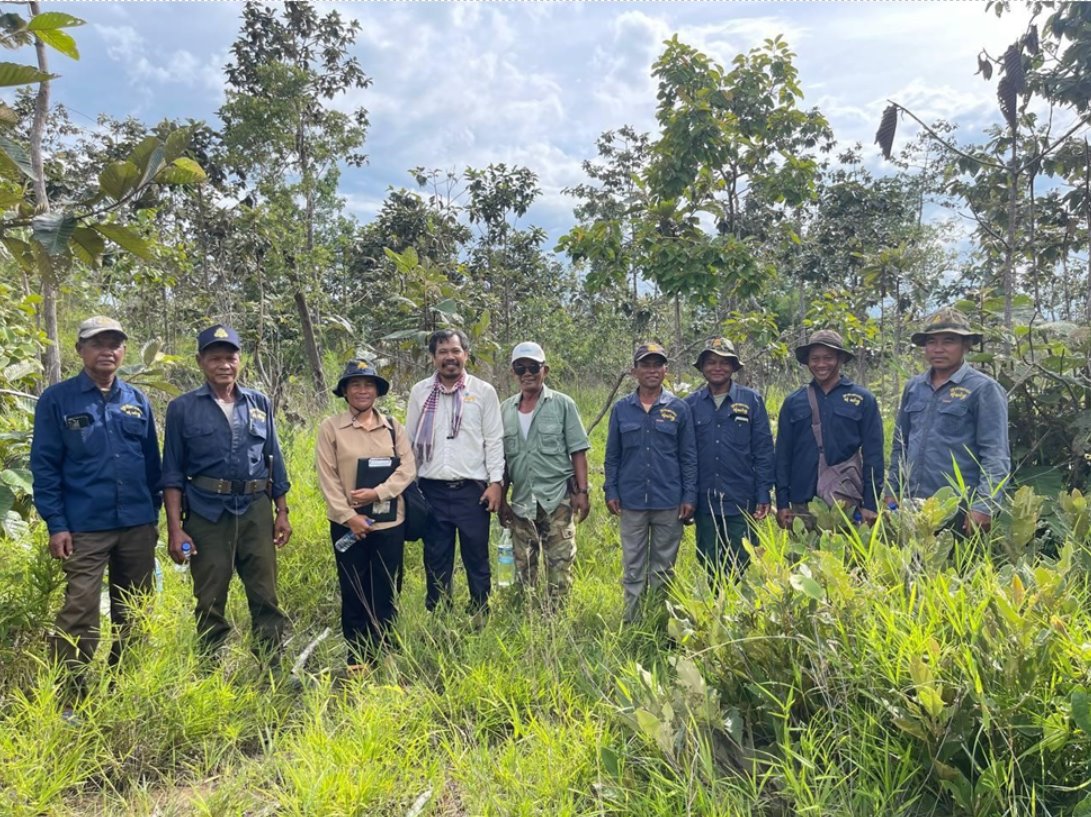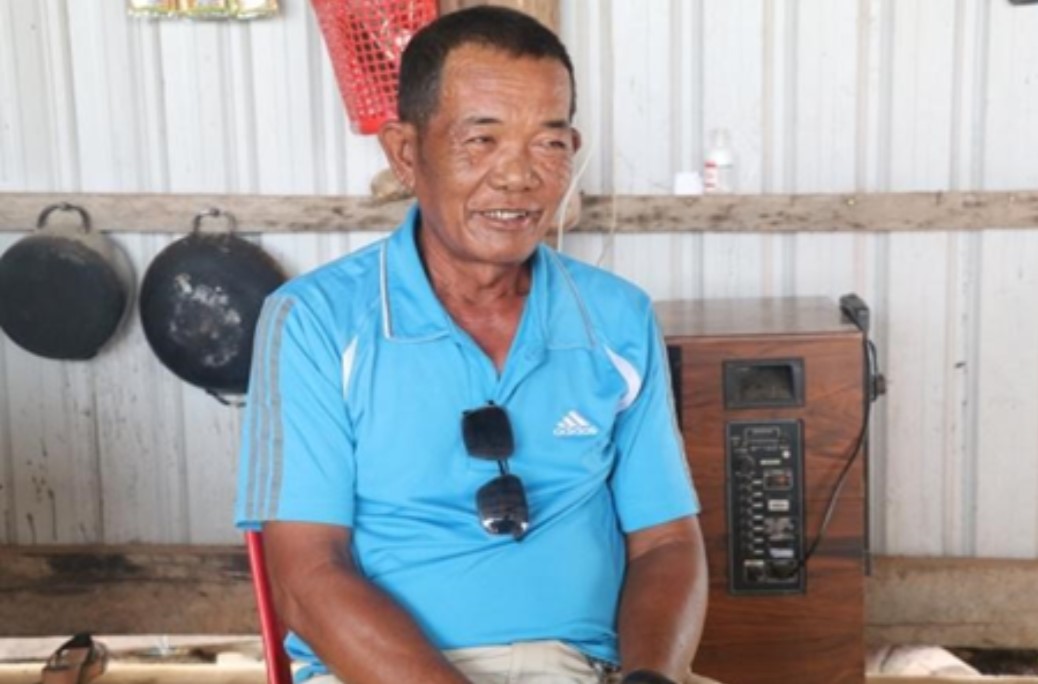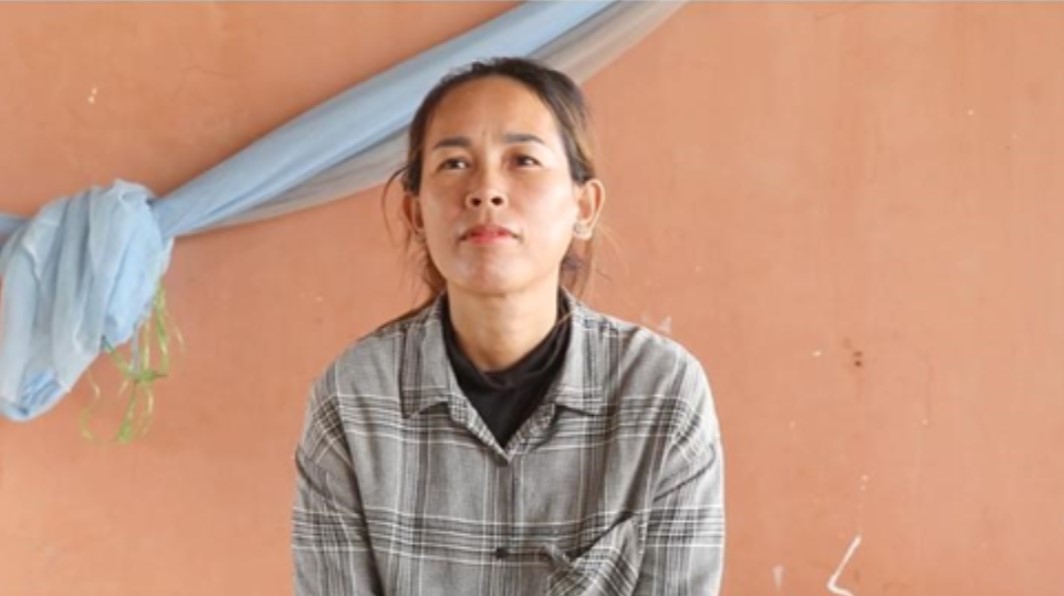This ongoing project (2024-26) is co-funded by Brot für die Welt (BfdW) and DanCurchAid (DCA). It aims at helping reduce the most profound inequalities still present in the Cambodian society, in particular by empowering local communities of districts and municipalities of several Provinces, to advocate with local and national authorities for positive resolution of their issues and the provision of better public services. The project aims to enhance transparency, accountability, inclusivity and civic engagement in local government.
To do so, API proposed a multi-pronged program based on trainings for CBO (Community-based organizations) leader and members and dialogue facilitation at all levels, as well as support to national Civil Society Organizations (CSOs) and working groups, which lobby the national authorities on the approval and enforcement of relevant laws aimed at widening civil control and transparency over decision-making process, budgets allocation, management of natural resources, and access to information relevant for the public and its watchdogs.
The project ended its first year with already many activities successfully completed in 4 target areas of the Country: Pursat (Phnom Krovanh district), Kampong Thom (Prasat Balang district), Phnom Penh (Khan Sen Sok) and Kandal (Ta Kmau Municipality), and focused in particular on the most disadvantaged and underrepresented segments of the population: women, youth, old age citizens, people with disabilities and indigenous people.
District Dialogue Meetings – API supported CBOs to conduct 8 dialogue meetings with District Governors, District Councils to raise community issues or concerns in 4 of target districts/Municipality. As a result, several issues were resolved with the intervention of the national government and other authorities, with topics ranging from deforestation, forest fires, and other forest-related crimes, land encroachment, illegal wildlife hunting, and unclear community forest boundaries.
Awareness Campaign and Dissemination Workshops – API conducted 18 awareness campaigns/dissemination workshops with a total of 550 participants (300 females). CBO members and citizens increased their understanding of using commune/district budget information, One Window Services, procurement information, also by utilizing the API-produced Citizen Budget App and Facebook Pidor Chatbot.
Capacity Building to Local Authorities – API conducted trainings attended both in person and online, for local authorities’ representatives at all leves (DMK governors/deputy governor, DMK councils, and other offices within DMKs).
Training to CBOs Leaders/CBO Representatives – API conducted trainings to 72 participants (45 female), representing 10 CBOs in Prasat Ballangk district, Kampong Thom province, Phnom Krovanh district, Pursat province, Khan Sen Sok in Phnom Penh Capital city and Krong Takmao in Kandan province. Among the training topics: good governance in budgeting and procurement at sub-national level (transparency, accountability, community engagement), CBO leadership and management, communication skills.
Dialogue Meeting on Internet Censorship Report – API held a dialogue meeting with Deputy Director of the Secretariat of the National Committee for sub-national Democratic Development (NCDD) of the Ministry of Interior (MoI), to present the findings of the “Internet Censorship Report 2024”. In the meeting, API urged the Government to formulate and enforce its legislation on the exercise of freedom of expression and association, in compliance with the requirements of Articles 19 and 22 of the Covenants on Civil and Political Rights and the Convention on Human Rights.
Phnom Penh Internet Forum 2024 – API and the Digital Rights Working Group (DRWG) co-organized the two-day Phnom Penh Internet Forum (PPIF) 2024, engaging 174 participants from a diverse range of sectors such as professional journalists, citizen journalists, students, LGBT individuals, people with disabilities, ethnic groups, civil society organizations, and ministry representatives. The forum focused on digital rights and security, addressing key challenges faced by various communities in Cambodia, from the implementation of the Cambodian Digital Government Policy (2022-2035), to protection of personal data, online fraud, harassment, freedom of expression, the role of artificial intelligence (AI), and the findings of the Open Observatory Network Interference (OONI) Probe App.
Consultation on Macro-Economics for the Budget Law 2025 – API and the Budget Working Group (BWG) organized a consultation workshop on the macro-economic aspects of the budget law 2025. The consultation resulted a joint position paper covering issues related to childcare and education, health, social protection spending, Sub-National Administration, agriculture and Natural Resources Management. The position paper was submitted to Ministry of Economics and Finance (MEF) and to the National Assembly (NA).
National Public Forum – API and the BWG organized the forum on “2024 Budget Rationalization and Strengthening the Efficiency of Budget Execution and 2025 Budget Law Formulation, attended by 107 participants (42 females) from relevant State branches, including the National Assembly, the Ministry of Economy and Finance, the Ministry of Interior (MoI), and the National Committee for Democratic Development (NCDD), plus representatives of the Private Sector, UN Agencies, development partners, national and international civil society organizations, universities, students, youth, indigenous communities, citizens, and the media outlets.
World Press Freedom Day Workshop 2024 – API together with media and other partner organisations organized the yearly World Press Freedom Day Workshop, attended by 222 participants (105 female), with the participation of journalists, civil society representatives, youth, and other stakeholders. The workshop included discussions, presentations, and interactive sessions focused on the importance of press freedom, the role of journalists in environmental advocacy, and the challenges faced by media professionals in Cambodia, and it highlighted the need for a free and independent press to address environmental issues and hold authorities accountable.
International Day for Universal Access to Information 2024 – The Access to Information Working Group (A2I WG), led by API, organized the yearly Access to Information Workshop with a total of 229 onsite participants (104 women) and 69 online participants (35 women). The workshop was held under the theme “The Right to Information Law Promotes Investment and Economic Growth in Cambodia” and focused on: 1) Reactivating the draft A2I Law approval process. 2) Increasing public awareness of the importance of Access to Information.
Submission of Universal Periodic Review (UPR) Report – API led the Access to Information Working Group (A2IWG) to produce and submit the UPR report on Access to Information in Cambodia to the United Nations Human Rights Council. The UPR report was shared with development partners (EU, USAID, Germany-GIZ, Switzerland-SDC, UK Embassy, and UNOCHR). The Cambodian Human Rights Commission, representing the government, responded to the UPR report stating that the draft Access to Information Law had already been sent to the Prime Minister’s Office by the Ministry of Justice.
Ministry of Interior’s Announcement Letter 4499 – Also based on the collective efforts of API and the Civil Society, on July 26, 2024 the MoI announced the decision to establish a Monitoring, Control and Evaluation Team on the preparation and implementation of Commune and Sangkat’s project funds. The decision of the Ministry to establish this team aims at ensuring the transparency, accountability, enhance the efficiency and impact of funds for local development projects, ultimately benefiting local communities
Dedicated to Forest Protection, this API-supported Community Encounters Challenges from Limited Resources

The community patrol stands in the middle of the community forestry located in Kol Tor Toeng Village, San Tre Commune, Phnom Kravanh District, Pursat Province.
(Pursat Province) The forestry community of Kol Tor Toeng Village is working hard to combat crime in the community forest, which is prone to frequent illegal activity from external loggers, but is facing a lack of resources for regular patrols. The community forest consists of two areas, 3-4 kilometres apart.
The first area is called Prey Sleuk, which is smaller in size compared to the second area, Prey Kro Nyung Thom, which was once full of large rosewood trees. Currently, only small trees remain in the Kro Nyung Thom community forest, which is also being targeted for logging.
The community, established in 2005 in Kol Tor Toeng Village, San Tre Commune, Phnom Kravanh District, Pursat Province, has nine committees and approximately 293 members, 35 of whom are women. Due to a lack of resources to patrol the Kro Nyung Thom community forest, the forest guards have reduced patrols to once a month, and sometimes not at all.
Recently, the community was informed about trees being illegally cut down, but there were not enough forces or resources for patrols. The community leader, Mr. Thlan Yon said, ” There were deforestation reports and I have not been able to go. If I go alone, I am afraid for my own safety.”

Mr. Yon called on other committee members to assist in patrols, but there were insufficient resources, particularly gasoline for the motorbikes, to stop the crimes. He suspects that the criminals who came to clear the forest, are citizens from distant villages who are aware that the forest is a community forest.
In the past, the community has actively cooperated with authorities to suppress crimes, such as cutting down trees to make charcoal. After the perpetrators, who were community members, were caught, they were taken to the San Tre Commune Hall to sign a contract promising to stop further deforestation. As a result, the criminals ceased their activities.
Mr. Yon is often invited to attend monthly meetings at the district and commune halls to raise the issue of crime in the community forest, but no solution has been found because there is no budget for regular patrols. The district and commune hall budgets are also allocated for road construction, rather than providing resources for rangers to patrol.
Previously, the community had not dared to raise proposals or attend meetings, but after joining the Citizen’s Voices and Action for Sustainable Development in Cambodia (CASDC) project, supported by Brot für die Welt (BfdW) and DanChurchAid (DCA) and implemented by the Advocacy and Policy Institute (API) since 2022, the community has gained the courage to participate. Ms. Sinang stated, “Before, we were afraid to attend meetings, but after joining API, we gained confidence.”

Similarly, Ms. Mi Sokry, another community member, said that the training courses and workshops provided by API, such as those on advocacy, access to information and dispute resolution inside and outside the courts, have been very beneficial for both her and the community.
Mr. Yon added, “My request is for a small budget just for the patrol committee… because when I patrol alone, I am afraid, especially if they [criminals] have knives, axes, etc. I don’t dare. I also want a sign to be placed on the community trees.”
In addition to training sessions, there are various practical tools and resources that could significantly enhance the forestry community’s ability to patrol and protect their forest effectively. First, having the right equipment for patrolling is essential. Access to reliable transportation, such as motorbikes or bicycles, along with sufficient fuel, would allow community members to cover large areas of forest more frequently and efficiently. Additionally, GPS devices or mobile apps with offline mapping capabilities could help them track illegal activities with precision and report these incidents to the relevant authorities. The use of drones could also be highly beneficial, offering aerial surveillance to monitor large sections of the forest without requiring physical patrols. This would allow the community to identify illegal logging operations from a safe distance. Communication devices such as radios, walkie-talkies, or mobile phones equipped with group communication apps would help patrolling teams stay connected, share updates, and call for assistance if they encounter dangerous situations. For continuous monitoring, installing cameras and motion sensors around vulnerable areas of the forest could capture evidence of illegal activity and deter potential offenders.
Infrastructure improvements, like placing clear boundary markers and signs around the community forest, would raise awareness and discourage illegal logging. The construction of watchtowers or small patrol stations at key entry points could also provide vantage points for monitoring the forest more effectively. These efforts could be further supported through formal partnerships with local law enforcement and forestry authorities, which would allow for quicker responses to reported illegal activities and provide the patrol members with additional legal backing. Raising awareness in nearby villages about the importance of forest conservation and the legal ramifications of illegal logging could reduce the frequency of such activities. Additionally, mobilizing local youths or volunteers to participate in forest monitoring could provide much-needed manpower and cultivate a sense of responsibility within the broader community.